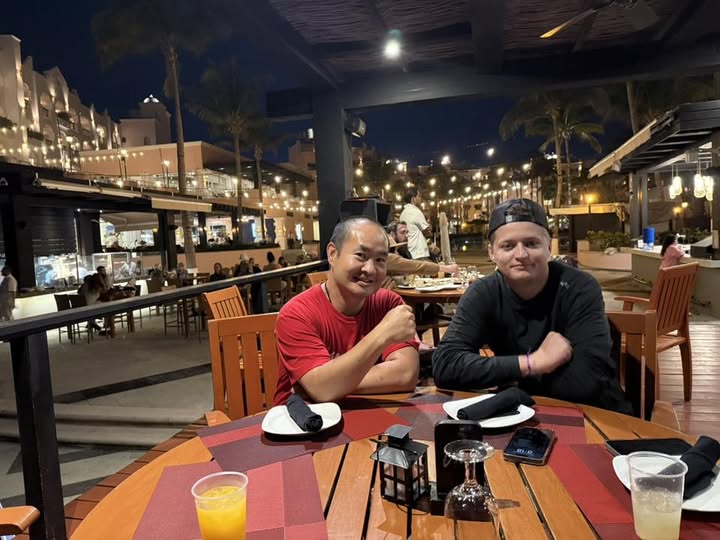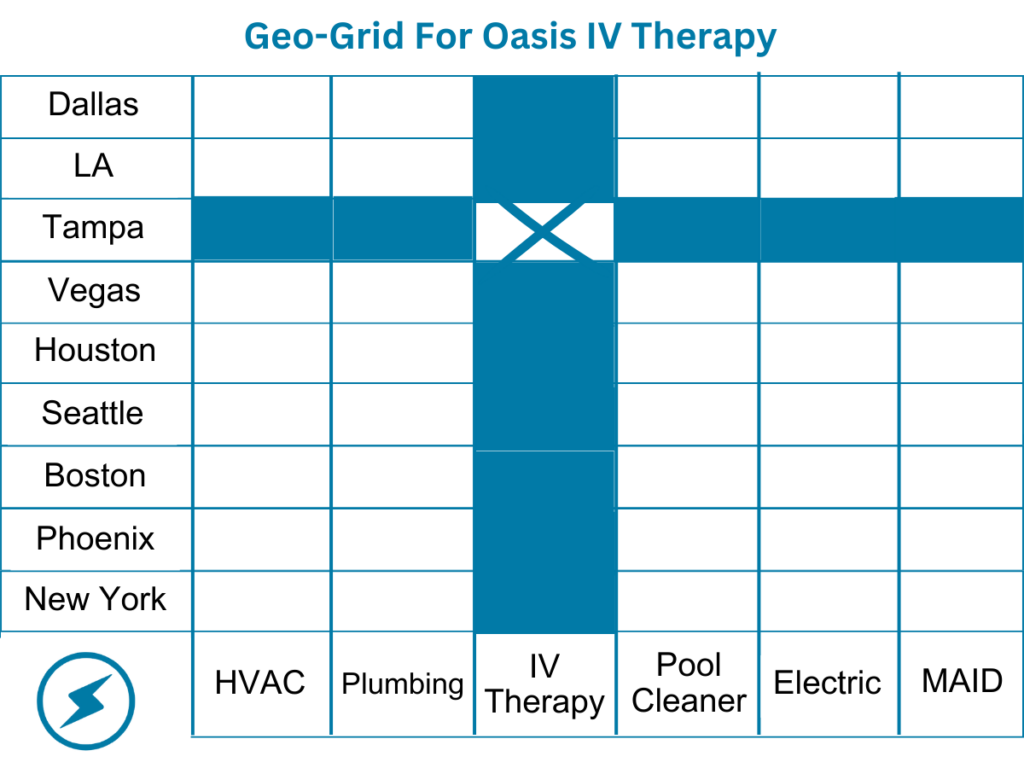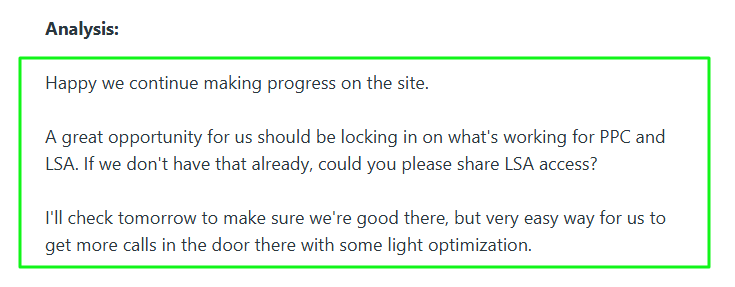
Imagine paying thousands of dollars every month for SEO, only to receive reports filled with impressive graphs, but no new customers.
That’s the reality for many local service businesses.
While hiking through Red Rock Canyon in Nevada, my friend Marko Sipilä and I began discussing this issue. We’ve both seen agencies promise the world, tie clients into long-term contracts, and deliver almost nothing.
Marko asked me, “Why are these SEO agencies charging so much each month if they’re not producing results?”
You’ve probably heard the same excuses:
“SEO takes time.”
“You’re ranking for more keywords.”
“Your bounce rate has improved.”
But if you aren’t getting more phone calls, booked jobs, or actual revenue, those numbers don’t matter.
You’re Paying for Activity, Not Results
Most SEO agencies bill you for activity, not outcomes. They send automated reports filled with keyword growth, traffic spikes, and bounce rates.
These reports are designed to impress, not convert. If they don’t tie to phone calls or jobs, they’re just noise.
Many agencies rely on confusion. They hide behind jargon, dashboards, and vague metrics while doing little real work.
SEO Only Works If You’ve Built a Real Reputation
SEO can’t generate trust on its own. If your business doesn’t already have reviews, photos, and a complete Google Business Profile, it has nothing to rank for.
What shows up in search is a reflection of what’s already there. That’s why local proof—real jobs, real people, and real content—is the foundation.
Even the best agency can’t do anything if your business isn’t worth talking about. SEO just highlights what’s already true. If your reputation doesn’t exist, no amount of SEO will generate leads.
Google doesn’t reward gimmicks like link farms, keyword stuffing, or paid backlinks. It prioritizes trust. That trust comes from signals that show you’re a real business serving real customers.
What Counts as Proof?
- Reviews from actual customers.
- Engagement on your social media is tied to your services.
- Content that aligns with your location and niche.
- Relationships with others in your industry and area.
If you’re a local business, Google asks:
1. Are You Actually Located Where You Say You Are?
If you’re a plumber in Chicago, Google checks if you are actually in Chicago, if your traffic is coming from Chicago, and if you’re connected to other people in Chicago.
Google wants confirmation that you’re serving the area you claim.
2. Are People Talking About You?
Google looks for real engagement. This includes:
- Reviews from customers.
- Engagement on your website.
- Mentions and proof on platforms like Yelp.
- Social proof from platforms like Facebook, TikTok, and YouTube.
3. Is Your Business Active Across Multiple Channels?
Ranking in Google means doing great work, so your customers talk about you and amplify that content on multiple channels. Also, saying thank you and showing up in different ways.
These work because they match how Google actually ranks content.
Take, for example, Anthony Hilb, who grew his lawn care and landscaping company in Bloomington, Indiana, by $1.2 million in the last 18 months.
His success didn’t come from SEO tricks or mailers. The real secret was the massive goodwill and reputation his team of 70 employees built by delivering great work.

Your Google Business Profile Drives the Real Results
Many business owners think their SEO agency drives results. In reality, Google Business Profile often does the heavy lifting.
When someone searches for your business and calls you, that happens because of your reputation, not keyword tricks. If your GBP shows in local search, that happens because you earned reviews and interacted with customers.
If leads are increasing but website traffic isn’t, the SEO agency probably had nothing to do with it.
Fake Wins Don’t Produce Real Customers
Agencies brag about traffic, but if those clicks don’t turn into phone calls or jobs, it’s just fluff.
A personal injury lawyer might get articles written on topics like:
- How to get a CDL?
- What is a reefer truck?
- How much does a semi weigh?
These bring in traffic, but not from people who are injured and need a lawyer.
A pest control company in Portland might publish “The 10 Most Dangerous Spiders.” It ranks, but draws readers from all over the world, none of whom are hiring exterminators in Portland.
If the clicks don’t convert, it’s not SEO. It’s wasted budget.
When Agencies Waste Your Money
Richard’s SEO Failure
Richard, owner of Fox Air and Heat, paid $14,775 for SEO, a website, and social media. After months, his rankings stayed the same. Leads still came from referrals.
When he canceled, the agency took down his website and GBP and demanded another $8,000—despite doing no meaningful work.
Here is what Richard said in one of our conversations “It’s sad that so many of these so called marketing companies are quick to take payments from clients but slow to deliver results and their solution is often times, well “you need to increase your spending budget with us, since we are optimizing everything, and also up your paid ads”, instead of doing their job and tweaking the current ones.”

Sean’s $1,200-a-Month Trap
Sean Dittmer of C&S Real Estate paid $1,200 monthly. His agency built spammy backlinks from irrelevant sites. Google could have penalized him for it.
We audited his setup. No real SEO happened. He paid for the activity, not the results.
Sean asked, “So I’ve been wasting money this whole time?”
The answer was simple: yes.
What Actually Works for Local SEO
1. Build Local Relationships with the Geo-Category Grid
The Geo-Category Grid helps local service businesses be more strategic and efficient with their advertising, leading to better targeting, higher engagement, and more customers.
Let’s demonstrate using an example:
A business offering IV Therapy in Tampa, like Oasis Mobile IV Therapy, should partner with other Tampa businesses or IV Therapy businesses outside their area.
This creates a “cross,” showing Oasis IV Therapy the types of businesses they should collaborate with and link to, and vice versa.
These could be IV Therapy clinics outside Tampa or other local businesses in Tampa.
They wouldn’t have much in common with an HVAC company in New York or a plumbing business in Boston, but they would have a lot in common with an HVAC company in Tampa (GEO) or an IV Therapy clinic in Phoenix.

By sharing links between these businesses, they can grow together ethically.
2. Produce – Film Video Content That Builds Trust
This is the first stage of the Content Factory: Produce.
Film short videos that show what your team does, answer real customer questions, and document your work in the field. Here’s how you should start:
- Deliver excellent service to your customers.
- Ask those customers to leave reviews and engage with your content.
- Record those interactions—on video, in posts, and in testimonials.
These clips prove your expertise, demonstrate your legitimacy, and become the foundation for everything else in your marketing.
Example: If you’re an HVAC business like Litsey Heating and Air, do short interviews with other HVAC businesses in different cities or answer real customer questions on video.
Or take my buddy Nilson Silva, who owns a $16 million/Year pool business in South Florida. He is always filming short video content and posting on his social media, which in turn sends signals to Google that he is doing a real job.

3. Post – Share Your Content Across All Platforms
This is stage three of the Content Factory: Post.
Distribute that content everywhere your customers are looking:
- Google Business Profile.
- Facebook.
- YouTube.
- Your website.
Then repurpose each video into blog posts, reels, FAQs, and more. Every platform is a chance to reinforce your reputation and show proof of performance.
Take, for example, Toby Surber, who runs Ad Astra Softwash, a softwashing business in Kansas. He always takes videos and photos when taking care of his clients. He posts these on his website and social media, sending signals to Google that he does what he says he does.

4. Run Dollar-a-Day Ads on Content That Works
Boost your top-performing content for one dollar per day. Target your ideal customers and convert cold traffic into warm leads.
Use the Weekly MAA Cycle to Stay Accountable
Most agencies never show their work. That’s why we follow the MAA Cycle—Metrics, Analysis, Action.
- Metrics – Track real business growth, not just vanity metrics.
- Analysis – Assess why certain efforts are working and which ones aren’t.
- Action – Implement real changes based on the analysis, optimizing efforts continuously.
This cycle forces transparency. You stop guessing and start seeing where your growth comes from.
Take, for example, how we are doing MAA for one of our clients to ensure they’re getting real business results.
- We start with the “Metrics”.

2. We “Analyze” the metrics to determine how to improve.

3. We decide on the next “Actions” to take.

“SEO Takes Time” Isn’t an Excuse for Not Showing Work
You should see real updates every week, including content, leads, distribution, and proof.
If your agency doesn’t provide:
- Weekly updates showing work completed.
- Clear attribution of leads.
- Evidence of content, links, and distribution.
Then they’re not earning their fee.
Final Thoughts
What Works in Local SEO Is Simple:
- Film what your team is doing.
- Partner with other real businesses.
- Track leads and reviews, not vanity metrics.
- Share everywhere your customers look.
- Ask for proof of work every week.
Traffic is nice. Results pay the bills.
Want to see how to hold an agency accountable? Watch the breakdown here: “Holding Marketing Agencies Accountable.“
